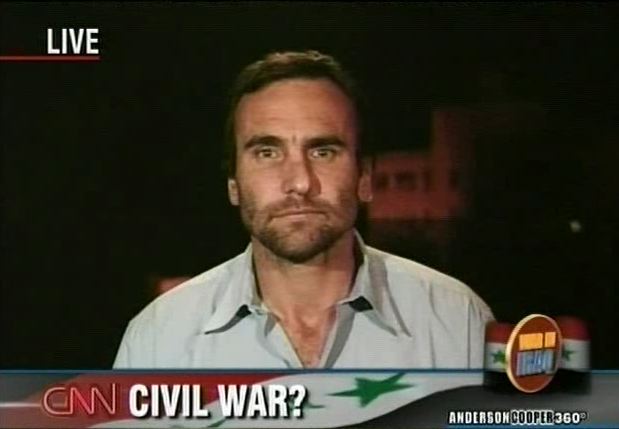AC: " '...so, when are you leaving?' "

Click photo to play
Length: 4:02
JOHN ROBERTS: Today in Baghdad, police found 60 more bodies, all showing signs of torture. The U.S. military says these killings, and many more like them, are the result of fighting between religious groups.
But a good number of Americans believe something else is happening. According to a new CNN poll, nearly two-thirds of Americans believe Iraq is in a civil war.
For the latest on what's happening there, we turn now to CNN's Michael Ware. He's in Baghdad.
Michael, first thing I wanted to ask you about was this new audiotape message from the new leader of al Qaeda in Iraq, Abu Ayyub al-Masri, very chilling, talking about kidnapping Americans, and also trying to recruit nuclear scientists.
What is that all about?
MICHAEL WARE, CNN CORRESPONDENT: Well, this is the new leader who stepped into the shoes of Abu Musab al-Zarqawi, the famous al Qaeda leader, who was killed in a U.S. airstrike in June, making his own mark.
This is essentially the first chapter of his manifesto, putting his imprint on the organization. And he's begun with a call to arms. It's a reversion, perhaps, back to a bit more classic style al Qaeda. But he says that he's now launching a military campaign to uproot the infidel. He's called on the free mujahedeen to take a Western infidel as a prisoner, hopefully in exchange for the blind Muslim cleric being held in New York for the 1993 World Trade Center bombing.
And he calls for these scientists. So, really, he's taking things up a notch, saying, "We want to go on the offensive."
ROBERTS: Yes, this trying to recruit nuclear scientists, this would seem to be the ultimate nightmare that this administration keeps talking about. Is that just him trying to be bigger than life? Or do you think he's got some chance of actually recruiting one of these scientists?
WARE: Well, there certainly are a number of weapons scientists floating around this country.
In the wake of Saddam's WMD program or weapons program, whichever way you want to look at it, there certainly is a degree of expertise in this country. Now, I know that some of that expertise has bled into the insurgency. And U.S. military intelligence picks up some of these people or see signs of their work.
We have also known that the insurgency has dabbled with very crude chemical weapons. So, we do know that they have had an interest in this. However, I really think this is more rhetoric than anything else. They definitely will pick these people up, though.
ROBERTS: You know, we mentioned some polls at the top of this, Michael. And there are new polls out there that would seem to find support for what al-Masri is talking about. There is support for attacks against American-led forces -- a majority of Iraqis now favoring them.
And, also, about three-quarters of Iraqis believe that U.S. forces are provoking more conflict than they are preventing in Iraq, and should be withdrawn within a year.
So, is that really the case, Michael? Is that what you are picking up on the streets there, that the majority of Iraqis are saying, United States, it's time to get out of Iraq?
WARE: Well, people back home need to realize that U.S. forces are simply unpopular in this country. They have been since the very beginning.
In the wake of invasion, people said, "OK, you removed Saddam's regime." And, almost immediately, they were then asking, "So, when are you leaving?
And middle Iraq, the ordinary people of this country, in the beginning, they gave the U.S. forces and the U.S. mission a chance. They were looking for prosperity, development, reconstruction, and a whole new way. But they said, "I gave you one year. I gave you two years. I have given you three. It's gotten worse, not better, and I still have no services."
ROBERTS: Right.
And, then, there are people, of course, Michael, who are predicting that, when the U.S. pulls out, that the whole place will devolve into civil war.
Michael Ware, in Baghdad, thanks very much.
